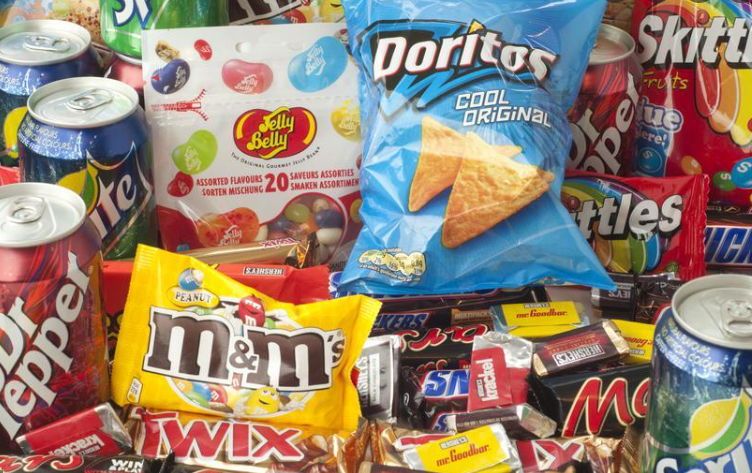
by Well Balanced Nutrition More | Dec 5, 2007 | Learn
Hello Health Chick! What are the top 3 supplements for someone with fibromyalgia? Any other essential treatments/therapies?
Short Answer:
5-HTP – 100 mg at bedtime, Magnesium – 200 mg 3 x daily, Whole Food Multi-vitamin- 3 x a day
Fibromyalgia is a complex disorder with many physiologic interactions. There is no known single reason or theory explaining why the symptoms occur, but there are many things that can help.
Most sufferers with fibromyalgia have disturbed sleep and do not get enough deep sleep necessary for repair and healing. This can then lead to the symptoms of fatigue, pain, brain fog, and depression. To combat the sleep disturbance, in addition to help with depression, 5-HTP has a good research background (2). 5-HTP is the precursor to the neurotransmitter serotonin which is also shown to be low in people suffering from fibromyalgia.
Next, magnesium, is necessary for enzymes that produce energy in the mitochondria and has been shown helpful for decreased fatigue and pain (3).
A Whole food multi-vitamin is necessary to ensure the body has all the proper co-factors, antioxidants and nutrients necessary to carry out the millions of metabolic processes that occur continually. A whole food vitamin comes from food and is not synthesised in a laboratory. Some brand to choose from are Nature’s Way, New Chapter, Garden of Life, Rainbow Lite, there are others.
Other supplements that would be beneficial are: fish oil with high EPA & DHA and an adaptogenic herb or mushroom like Cordyceps, Schisandra, or ashwangandha.
Daily mild physical activity is a must and a detoxification program can never hurt. I would also try acupuncture for pain.
References:
1. Murry, M. & Pizzorno, J. (1999). Encyclopedia of Natural Medicine.
2. Health Notes, PCC Natural Food Markets
3. Magaldi M, Moltoni L, Biasi G, Marcolongo R. Changes in intracellular calcium and magnesium ions in the physiopathology of the fybromyalgia syndrome. Minerva Med.Jul-Aug;91(7-8):137-40.

by Well Balanced Nutrition More | Nov 5, 2007 | Learn
Detoxification is defined as “the metabolic process by which toxins are changed into less toxic, or more readily excreted substances” (1) and a toxin is basically a poison, or something that is harmful. In our environment, lifestyle, and inherently in our metabolism we are continually exposed to toxins. Some of them are quite potent and can disrupt our biological systems on fist exposure and others are inert in small doses, but become toxic with accumulation. Luckily, we were designed to eliminate and overcome toxic exposure though various systems and organs in our physiology, however as our environment, food, water, personal products, and lifestyle habits become more polluted our bodies become less efficient at riding the toxins. We then start to feel these poisonous effects in varying manifestations and degrees.
The concept of detoxification is not a new one. The Bible makes references to fasting and other cleansing practices as a means to facilitate detoxification (3) and animals as well as primitive cultures restrict food to the ill as a means of healing. There is scientific evidence that fasting practices elongate life and wellness (3).
There are many routes of toxic exposure. Our human biochemistry is the very first one. The colon houses many forms of bacteria for protection and metabolism; a byproduct of this bacterial metabolism is essentially toxic to our system and needs to be changed into a less toxic form to be excreted. Also in the colon as a function of frequent antibiotic use and chronic exposure to sugars our protective bacteria can die off and harmful bacteria can overgrow. This in addition to chronic exogenous toxin exposure and food allergy, can result in a more permeable colon wall resulting in these toxic bacterial penetration into the systemic body as well as the other toxic substances consumed. (4).
Environmental exposure is the biggest source of toxin buildup. Our Crops are sprayed with pesticides, herbicides, and fungicides. Livestock are fed these crops and then administered hormones and antibiotics. The food is then processed, preserved and packaged with more chemicals. Chlorine, and other chemicals are added to our water supply as a means to prevent bacterial infection, however sometimes in larger amounts than necessary. (5). Heavy metals and coal produced from industry are released into the air which we then breathe, or is deposited back into the soil and water. We also use personal products that contain chemicals, use cleaning chemicals and live in homes and work in buildings which emit fumes from carpets, paints and other building material and scents (6). We consume alcohol, caffeine, drugs and medications, all of which are considered toxins and must be detoxified by our systems.
All of this exposure cannot and need not be avoided because the skin, liver, intestinal system, and kidneys work hard at detoxification and elimination. However, when there is chronic exposure and no rest for these organs, in addition to advancing age and stress, they can become overloaded and weakened. Toxins then will accumulate and are stored in lipids and may cause detrimental effects to the neurological, integumentary, immune, and metabolic systems (2).
References:
1. Webster’s Dictionary
2. Murry, M. & Pizzorno, J. (1998) Encyclopedia of Natural Medicine, 2nd ed. Prima Health.
3. Reid, D. (2003). The Tao of Detox. Simon & Schuster, Africa House.
4. Galland, L., M.D. F.A.C.N, (1995). Leaky Gut Syndromes: Breaking the Vicious Cycle
5. www.holistichealthtools.com/chlorine
6. National Institute of Building Sciences. (2006). Indoor air quality. http://ieq.nibs.org/index.php


